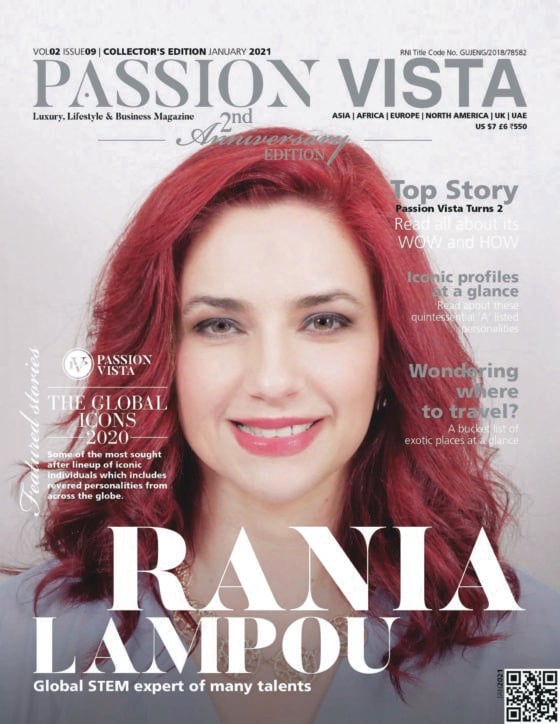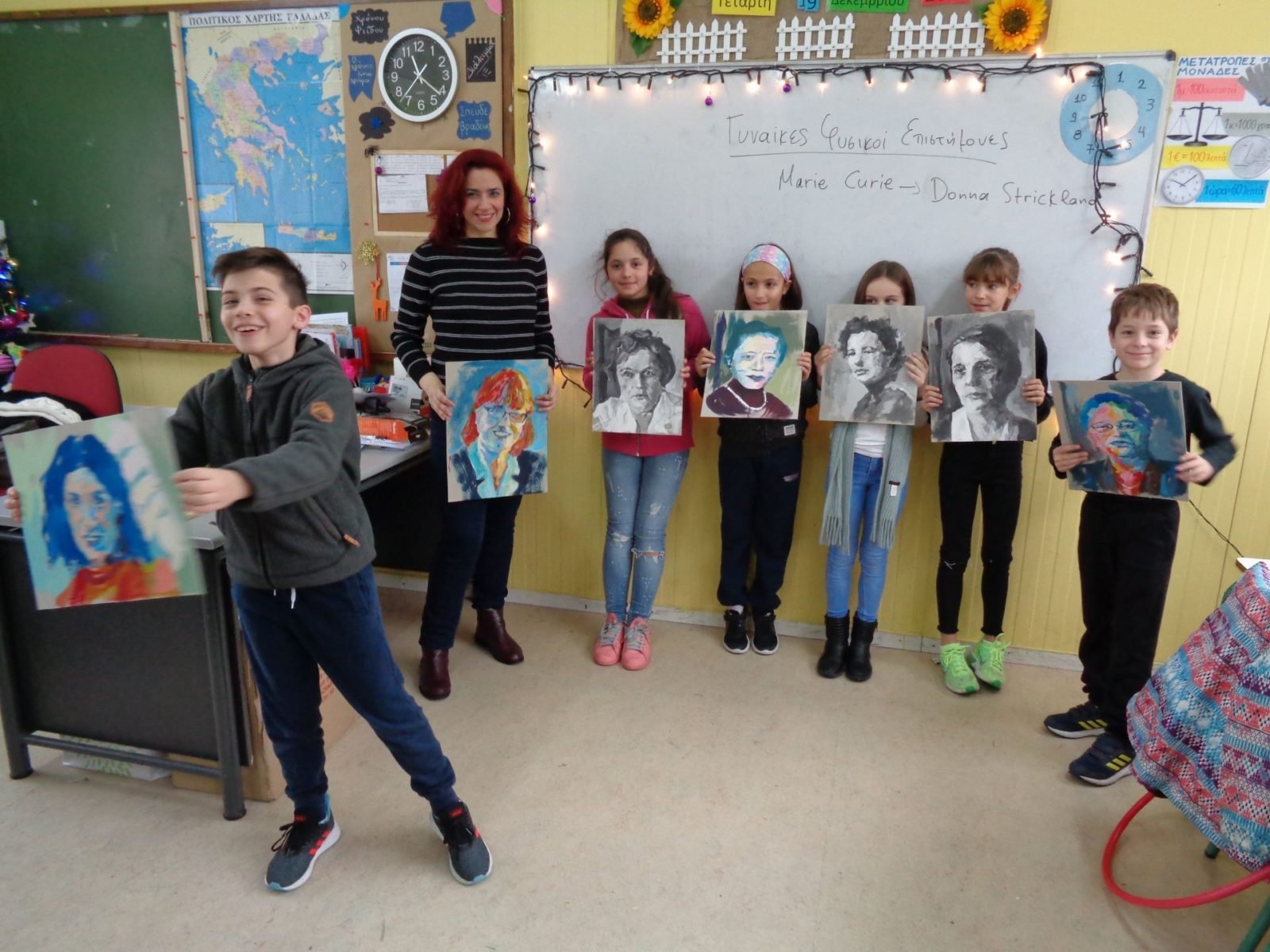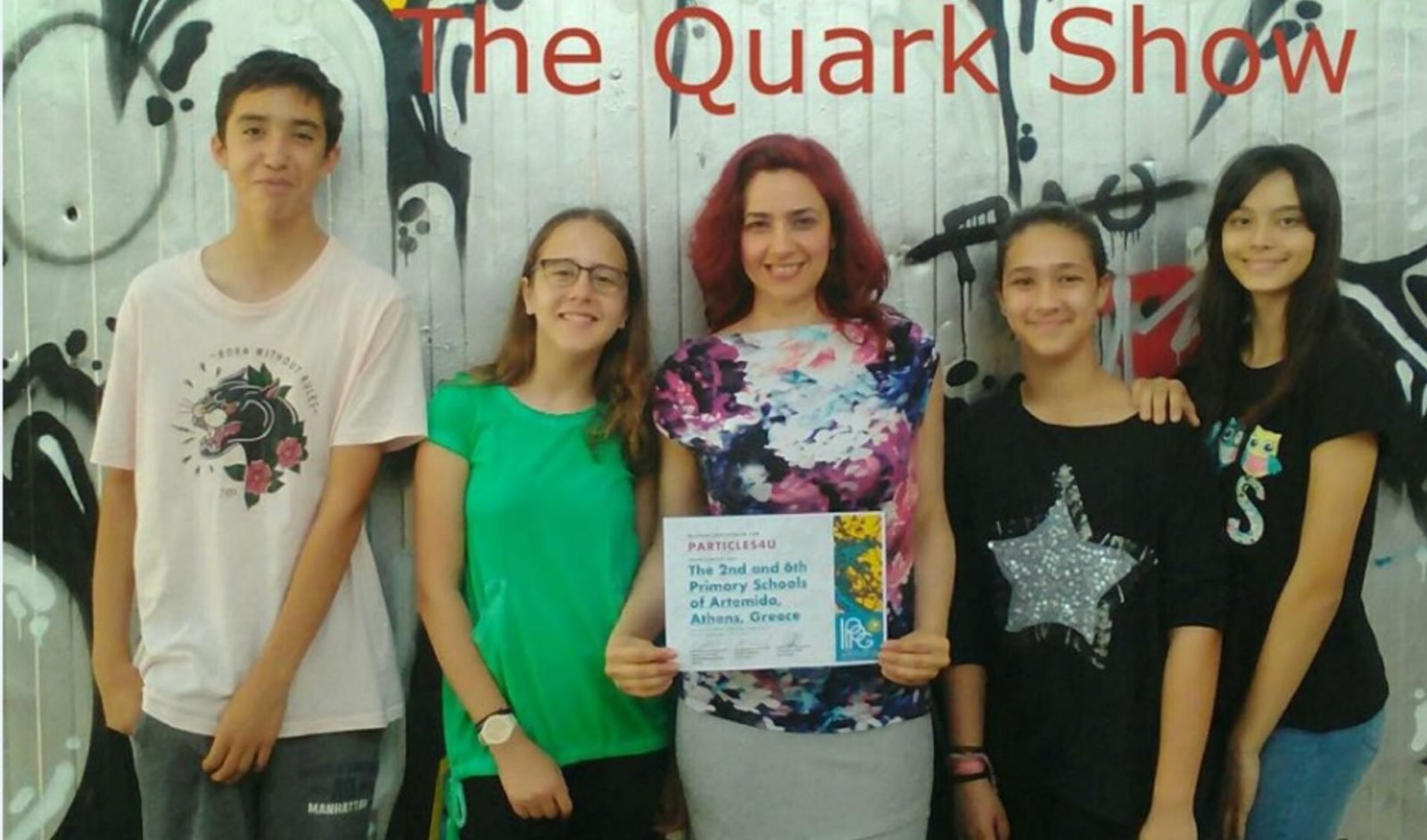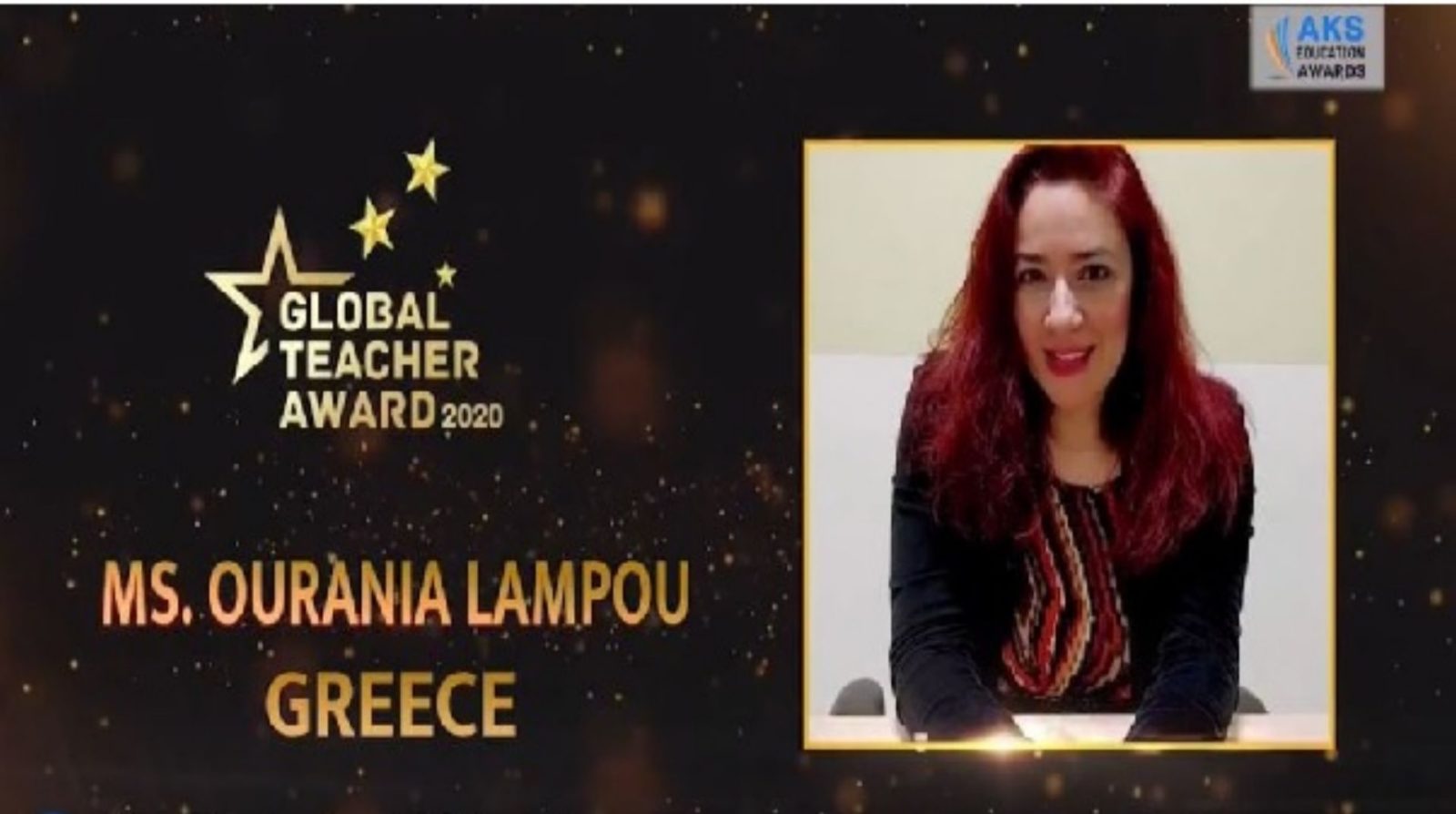One of the leading voices in the global educational sector, is Greek STEM (science, technology, engineering and mathematics) instructor, Rania Lampou, who in recent years has won several international and national distinctions for her passionate research and innovative teaching methodologies. Her greatest achievement so far, has been winning the Global Teacher Award for 2020 (AKS Awards), during the hardest year of all, for teachers across the world, that of the pandemic.
The charismatic Greek educator travels the world, designing and teaching STEM projects in schools within Greece and beyond, in Africa and Asia. At the same time, she participates in global virtual discussions with other top scientists and educators as they attempt to define the best methodology and strategies to provide the ideal learning conditions for primary school students.
Ms Lampou has never stopped learning and evolving in her field. With a post-graduate degree in language teaching related to cognitive neurosciences, the educator is now exploring cognitive psychology and neuroeducation, the principles of which she applies when designing and teaching STEM to her students.
World’s largest home-schooling experiment
“Do what you can, with what you’ve got, where you are,” American president Theodore Roosevelt once said.
This quote eloquently describes the situation in which teachers have suddenly found themselves in, with the outbreak of the pandemic, and the ingenuity they must possess in order to engage with their students through a screen, Ms Lampou told Neos Kosmos.
“You have to use whatever you have at a time of crisis. When you do not have the means, you can succeed with the mind, the heart, the soul, with a strategy and responsible leadership,” Ms Lampou said. Her teaching methods based on the principles of neuroeducation, brain-based learning, made the cover of K12 Digest, the independent international education portal and magazine, at the start of the pandemic, when lockdowns were enforced for the first time in several countries across the world.
“We are living through the world’s largest home-schooling experiment,” she wrote in that K12 Digest article, guiding teachers in their first steps of remote learning. “At the same time, it’s an unprecedented social experiment revealing our need for human connection.”
READ MORE: Young ‘dream creators’ make the impossible possible through innovative education program

Opportunity lies in the midst of every crisis
COVID-19 has changed lives in unimaginable ways. But Ms Lampou referred to Alfred Einstein, who said that “in the midst of every crisis, lies great opportunity”: the crisis can be a blessing as it brings progress and the opportunity for innovation and deep social changes.
“There was an explosion of virtual conferences, and the educational community across the globe has come so close.”
She emphasises how important these meetings and co-operations are between scientists from different countries, but also across different disciplinary sectors.
“Interdisciplinary research is much more effective than research that is limited to a narrow field of specialisation […] Problems are complex and require knowledge from different fields, and in the future we expect that problems will become even more complicated.
“What came out of this pandemic is that there is a continuous global dialogue, something that did not happen before COVID-19 came into our lives.”
As far as remote learning is concerned, Ms Lampou believes that it is here to stay, and it will become part of the school-learning programme, in conjunction with the physical presence in class.

It is up to the primary school teachers to plant the seed, the curiosity, that will stimulate their students' interest to explore the field of science, Rania Lampou explains. Photo: Supplied

"Our aim is not for the children to learn quantum physics. Our aim is to instill in them a love for science," Rania Lampou says. Photo: Supplied

STEM is the future of education
Ms Lampou was one of the first teachers in Greece to introduce Astronomy in her class through STEM projects.
“There is no other way to teach science. It has to be done in a creative way,” Ms Lampou said.
When she started teaching young children astrophysics, she remembered that some parents reacted, as they felt that such subjects were too complicated for their children’s young age.
“But when they saw what they had constructed, and how their children began to dream about a future in the field of astrophysics, they were delighted.
“Our aim is not for the children to learn quantum physics. Our aim is to instill in them a love for science,” she said.
“We know that the younger you learn a language, the easier you can absorb it. The same is true with science.”
According to research, she said, by the time students start high school, they have already decided whether they will pursue an interest in this area or not. It is therefore, up to the primary school teachers to plant the seed, the curiosity that will stimulate their students’ interest to explore these subjects.
“Unfortunately, the way science is taught in secondary education here in Greece, is quite boring,” but it doesn’t have to be that way, she added.
“All you need to do is look around you. There are natural phenomena occurring all around us, all the time. We just need to observe our daily life.”
The teacher, a mediator of knowledge
Ms Lampou said teaching is not a one-way process and we need to change the passive way students are expected to accumulate information and learn.
The role of the teacher is that of an adviser, a mentor, a mediator of knowledge, a team coordinator. After all, she said, teachers are also learning from their students. Teaching goes both ways.
She has been extremely moved by the way she has been able to excite students in Africa through her STEM programmes.
“They don’t even have the basic materials, sometimes not even chalk or a pen, and you have to implement these projects with whatever they have at hand. Wood, water, a lesson that belongs to ‘STEM Unplugged’ as we call it,” she said.
“When I started to do these projects in Greece and I saw how much it had helped children of low socioeconomic background to thrive, children from the refugee camps and students attending special schools for disabilities, I decided that it was worth expanding the programme to the schools in developing countries.”
With a passion for teaching, Ms Lampou also devotes time to volunteering as a teacher in oncology hospitals, refugee camps, as well as special schools.
“Volunteering stems from love. It shapes our souls,” she said, stressing how important it is that it should be part of the education children receive from their first year in primary school.
Ms Lampou is also working at the Greek Ministry of Education, at the Directorate of Educational Technology and Innovation, where she designs STE(A)M projects for Greek schools. In these projects, she combines the triptych: environmental education, STEM and Art, and these will take off at the start of the next school year.
Along with everything else she does, Ms Lampou has also published her first science book for children, in English and in Greek, on Astronomy, titled “Planetary Interviews”. This is the first of many science books she plans to write for children.
“I think anything is possible when you like what you do and you love it so much,” she tells us when we ask how she manages to find the time to accomplish everything that she does.
“I am a hard worker, and I love teaching, and children even more so.”
READ MORE: Vasso Apostolopoulos among the top 50 professors in higher education

For the first time in Australia
Ms Lampou is travelling, virtually, to Australia for the first time, when she along with other experts will be speaking about the future of education as part of the “Educating with Values Summit” in Sydney. The summit which takes place today (between 3pm and 5pm local time) is organised by the World Peace Council of Australia and the International Association of Academics for Peace (IAAP) Oceania. Ms Lampou, who is also a global peace ambassador, will talk about “Social values and volunteerism in education”. She believes that volunteering is one of the highest expressions of altruism and sensitivity towards social problems and needs, and should be taught in schools in a practical way so students can experience the joy of offering service to society.
The “Educating with Values” Summit in Sydney is open to all. It takes place between 3pm and 5pm on Saturday, 19 June, and if you would like to participate and listen to the experts including Rania Lampou , discuss the future of education, you can register at events.humanitix.com/educating-with-values and launch the zoom meeting through the link https://zoom.us/j/91539241559#success